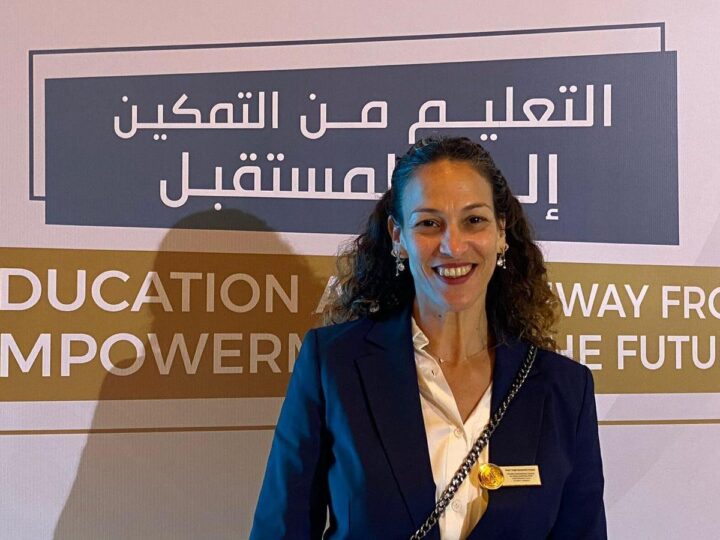An Israeli company’s Internet-based training program offers hope to those with dyslexia and other learning disabilities that affect reading skills.

“Humans haven’t been reading as long as we’ve been speaking or hearing, so the brain doesn’t have a ‘reading center.’ Each task involved in reading is distributed to different parts of the brain,” says Larry Shertz, CEO of Jerusalem-based CogniBeat.
Not only do these different parts of the brain have to communicate smoothly with each other, but also with the eyes, in a matter of nanoseconds.
CogniBeat recently launched its flagship software tool, AgileEye, an Internet-based training program for people whose learning disabilities make the already complex job of reading and spelling more difficult. The most common such disability is dyslexia, estimated to affect as many as 15 percent of English-speakers.
AgileEye’s non-verbal visual stimulation and hand-eye exercises stimulate processes governed by the autonomic nervous system – in other words, “waking up” the nerve cells involved in motion awareness and eye movement.
CogniBeat co-founder and chief science officer Jose Kullok explains to ISRAEL21c that the sensory-motor training aims to remove the involuntary obstruction blocking the way to fluent reading.
“Anyone from age seven and up can improve their reading by using AgileEye — even people within our company have found it helpful,” adds Shertz. “We want to increase and extend the quality of life just as medical science has extended the quantity of life.”
Transition to cyberspace
Kullok, a native of Argentina who speaks several languages, explains that AgileEye evolved from a venture started by his grandfather 75 years ago. That early innovation was a non-invasive method to optimize nervous system connections toward better overall health.
Kullok’s father, Saul, moved the family to Israel in 1976, when Jose was 12. Father and son eventually went into business and research together, exploring biofeedback techniques for learning enhancement.
“In the 1990s we had eight centers in Israel that treated attention deficit hyperactivity disorder successfully with an audiovisual biofeedback device,” says Kullok, who holds a number of worldwide patents on his inventions.
In 2001, American funders helped the Kulloks start Epoch Innovations in England, where they developed the first generation of AgileEye. That early version was used by more than 1,000 people in the United Kingdom, United States and Holland and led to BrightStar learning centers in London.
But the bricks-and-mortar approach was expensive and limiting says Shertz. “So as the Internet developed, we researched how to deliver our program through it.”
The free beta version of AgileEye is being used by people from India to Alaska, says Shertz. Additional language options (including Hebrew) will soon be added to the registration screen – the only part of the program that requires reading — as CogniBeat looks to extend its reach and begin charging a fee.
Firmly rooted in Israel
A Pennsylvania native with 25 years of experience managing and marketing technology in Israel, Shertz and his management team are devising a global market plan for AgileEye. A round of financing is underway in India, the United States and Brussels, where CogniBeat expects to open offices to serve those key markets. Brussels is the home base of founding co-partner Hans Wackwitz of Partners in Equity.
CogniBeat has 20 employees in its offices at the Jerusalem Technology Park and expects to expand to 35 over the next year as new products are introduced in the areas of memory development and attention deficit remediation.
Kullok, whose 80-year-old father continues to work closely with CogniBeat, is dedicated to keeping the heart of the operations in Israel. He and his family spent more than five years abroad, in London and in Palo Alto, California, while he got the company off the ground.
“I promised that after Israel had done so much for me, I would come back — and I did,” Kullok says. “As an Israeli, I have always wanted to bring credibility and fame to Israel in some way.”
Shertz shares that commitment, although doing business in Israel has its challenges. “The amount of bureaucracy and reporting demanded of small businesses makes this a difficult place to start a business,” he admits.
However, the positives outweigh any negatives. Shertz finds the Jerusalem workforce displays unusual loyalty and stability, perhaps because many of them are immigrants “who have given up their lives elsewhere and are ideologically motivated.”
Israel boasts a greater number of highly qualified software engineers per capita than in many other countries, Shertz observes. And it’s also cheaper to develop a business here. “It would have cost us more to do what we’ve done — probably double – in the West.”
















